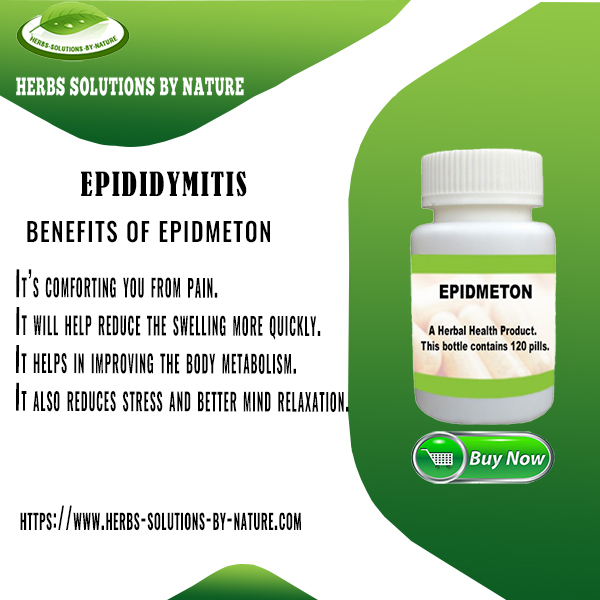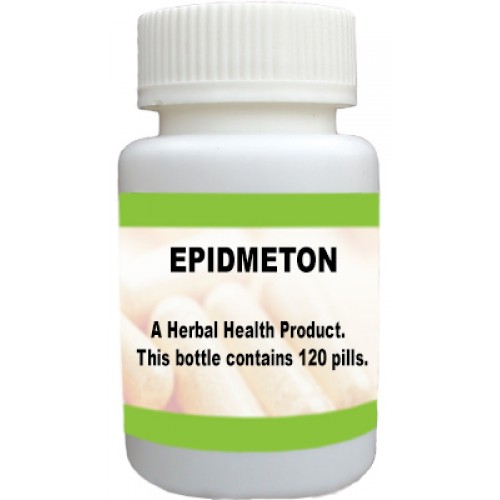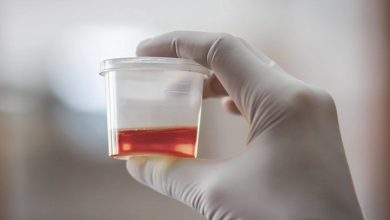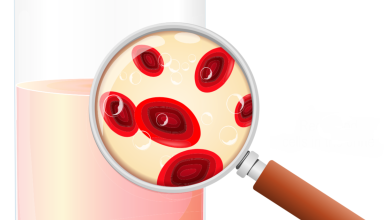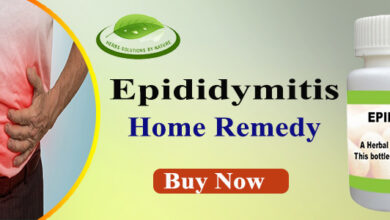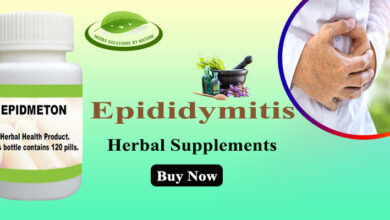Epididymitis Diet: Foods to Avoid and Best Foods to Eat for Natural Relief
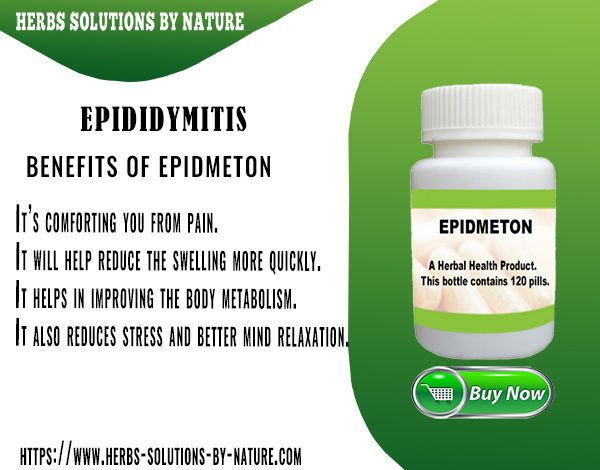
Epididymitis is a painful inflammation of the epididymis, the tube located at the back of the testicles. Fortunately, you can use several natural remedies for epididymitis to reduce symptoms and provide relief. One such treatment is following an epididymitis diet, which involves avoiding certain foods and eating other foods that are thought beneficial. Additionally, you can take Herbal Supplement for Epididymitis to help reduce inflammation and promote healing.
What Is Epididymitis?
Epididymitis is a condition that affects the epididymis, a tube located on the back of each testicle. It can cause pain, swelling, and discomfort in the testicles. It is usually caused by bacteria or viruses and can result from an infection, trauma, or a sexually transmitted disease (STD). You may use Natural Remedies for Epididymitis and Herbal Supplement for Epididymitis to help alleviate symptoms and manage the condition.
Epididymitis can affect men of any age, although it’s more common in men between 18 and 35. It can cause severe complications if not treated promptly, so if you experience any of the symptoms listed below, you should seek medical attention immediately.
Causes
A bacterial infection most commonly causes epididymitis, either from a urinary tract infection (UTI) or a sexually transmitted infection (STI). Bacteria like chlamydia and gonorrhoea are some of the most common culprits and Mycoplasma genitalium. Other causes include trauma to the testicles, such as during vigorous exercise or using a catheter. Noninfectious factors, such as autoimmune diseases and conditions like irritable bowel syndrome, can also cause epididymitis.
Natural remedies for epididymitis may help relieve pain and inflammation and reduce the risk of recurrence. Herbal Supplement for Epididymitis may include ginger, turmeric, saw palmetto, and bromelain. These Supplements for Epididymitis may reduce inflammation and help the body fight off infection. Other home remedies that may relieve epididymitis include rest, hot/cold compresses, and over-the-counter pain relievers.
Symptoms
Epididymitis is an inflammation of the epididymis, the tube that connects the testes to the vas deferens. It can cause many symptoms and often lead to discomfort, pain, or even infertility if left untreated. Symptoms of epididymitis typically include swelling of the scrotum and a feeling of tenderness in the area. Other symptoms may include fever, a burning sensation when urinating, painful ejaculation, and discharge from the penis.
Treatment for epididymitis typically involves taking antibiotics to help clear up the infection. You may also prescribe pain medications to help alleviate any discomfort associated with the condition. In addition, natural remedies for epididymitis, such as Supplements for Epididymitis, may also be beneficial in helping to reduce inflammation and improve symptoms.
Diet
Making dietary changes can be beneficial when it comes to managing the symptoms of epididymitis. As with any condition, it is essential to eat a balanced diet high in fibre and low in sugar and fat. Eating a diet rich in antioxidants can also help reduce inflammation and improve overall health. In addition to dietary changes, natural remedies and Supplements for Epididymitis may benefit some people with epididymitis.
The best foods to eat for the natural relief of epididymitis include foods high in fibre, such as whole grains, fruits, vegetables, and legumes. These foods are rich in vitamins, minerals, and antioxidants which can help reduce inflammation and strengthen the immune system. Omega-3 fatty acids from fish such as salmon, tuna, and sardines can also help reduce inflammation.
Herbal Supplement for Epididymitis: Supplements for Epididymitis such as turmeric, garlic, ginger, and saw palmetto help reduce inflammation and improve symptoms. However, speaking with a doctor before taking any herbal supplements is essential, as they may interact with other medications or cause side effects.
Foods to Avoid
When it comes to an epididymitis diet, there are some foods and beverages that You should avoid. Foods that contain high amounts of sugar, fat, and processed carbohydrates should all be avoided to reduce inflammation. It includes cakes, cookies, white bread, processed meats, fried foods, and sugary snacks. You should also avoid high-sodium foods such as chips and salty snacks. Caffeine and alcohol are best avoided to reduce inflammation. Additionally, spicy foods can cause discomfort, so they are best avoided with epididymitis.
Additionally, there are some natural remedies for epididymitis that should be avoided. Some herbal supplements can worsen the condition and may cause other health issues. For this reason, it is best to consult with a doctor before taking any supplements.
Best Foods to Eat
When it comes to an epididymitis diet, the best foods to eat are those that help reduce inflammation, such as anti-inflammatory fruits and vegetables. Eating foods rich in vitamins and minerals can also help boost your immune system, which can help with healing. Foods high in omega-3 fatty acids, such as salmon, mackerel, herring, sardines, and tuna, can also help reduce inflammation.
Other good options for an epididymitis diet include whole grains, lean proteins, legumes, nuts, seeds, and low-fat dairy products. Eating plenty of fresh fruits and vegetables is also beneficial as they contain essential vitamins, minerals, antioxidants, and fibre that can help keep your body healthy. Drinking plenty of water is also necessary to keep your body hydrated and flush out toxins.
Adding spices to your meals is also a great way to increase the healing benefits of your epididymitis diet. Herbs such as turmeric, ginger, garlic, and cayenne pepper can help reduce inflammation. It’s also essential to stay away from processed foods and sugary snacks. Eating a balanced diet can help ensure that your body has the necessary nutrients to heal from epididymitis.
Supplements
When it comes to supplements, there are several that can help support the epididymitis diet and promote natural relief from symptoms. However, it is always essential to consult a physician or other healthcare professional before taking any supplement, as some may only be right for some. Some of the accessories that have been shown to help with epididymitis include:
- Probiotics: Probiotics are beneficial bacteria that help maintain a healthy gut. Research has suggested that they can reduce inflammation and improve the symptoms of epididymitis.
- Omega-3 fatty acids: Omega-3 fatty acids, such as those found in fish oil, have anti-inflammatory properties and can help reduce inflammation caused by epididymitis.
- Zinc: Zinc is an essential mineral for overall health. It helps to support immune function and reduce inflammation.
- Vitamin E: Vitamin E helps to reduce inflammation and is thought to help treat the symptoms of epididymitis.
In addition to these supplements, several herbs may also be beneficial for treating the symptoms of epididymitis. These include turmeric, ginger, green tea, and garlic. It is important to note that these herbs should be taken cautiously, as they can interact with certain medications. Therefore, it is always best to consult your doctor before starting any herbal remedies.
Following an epididymitis diet and Supplements for Epididymitis with the proper nutrients and herbs can naturally relieve the symptoms associated with epididymitis.
Home Remedies
When it comes to relieving symptoms associated with epididymitis, several natural remedies may be beneficial. Some of these natural remedies may include:
- Herbal supplements: Herbal supplements such as saw palmetto, goldenseal, and marshmallow root are said to reduce inflammation, fight bacteria, and provide pain relief.
- Epsom salt baths: Taking an Epsom salt bath can reduce inflammation, swelling, and pain.
- Hot and cold therapy: Alternating hot and cold packs on the affected area can reduce pain and inflammation.
- Exercise: Gentle exercise can help reduce stiffness and increase circulation. However, if you experience increased pain during activity, you should stop and rest.
- Compression shorts: Wearing compression shorts or briefs can help reduce pain and discomfort associated with epididymitis.
- Herbal Supplement for Epididymitis: An Herbal Supplement for Epididymitis is also available to help reduce inflammation and symptoms associated with the condition.
These natural remedies may temporarily relieve epididymitis but should not be used as a replacement for medical treatment. If your symptoms persist or worsen, it is essential to seek medical attention immediately.
When to See a Doctor
If you experience any of the above symptoms or suspect that you have epididymitis, it is essential to seek medical attention. Your doctor will perform a physical examination and may request imaging tests, such as an ultrasound, to confirm the diagnosis. The sooner you start treatment, the better your prognosis will be.
Your doctor may prescribe antibiotics for bacterial epididymitis or recommend other medications or natural remedies. In some cases, Herbal Supplement for Epididymitis may be beneficial. Additionally, your doctor may recommend lifestyle changes, such as avoiding tight clothing, using cold compresses, and practising good hygiene to help prevent epididymitis from recurring.
If you continue to experience pain or other symptoms despite trying natural remedies and medications, you must see your doctor as soon as possible. The longer the condition goes untreated, the more difficult it can be to treat and the higher the risk for complications.
Prevention
The best way to prevent epididymitis is to practice good hygiene and follow a healthy lifestyle. Additionally, it is essential to observe an epididymitis diet that avoids high-risk sexual activities and activities that may cause trauma to the testicles. Regular checkups with your doctor are also beneficial to catch any potential issues early on.
If you have a urinary tract infection, you must complete the entire course of antibiotics prescribed by your doctor and drink plenty of fluids to help flush out the bacteria. Abstaining from sexual activity while being treated for an infection can also help reduce the risk of epididymitis.
Finally, eating a balanced epididymitis diet can help reduce inflammation and keep your body functioning correctly. Avoiding processed foods and including lots of fresh fruits, vegetables, lean proteins, and healthy fats can improve overall health and may help reduce the risk of epididymitis.
Final Thoughts
Epididymitis can be a debilitating and uncomfortable condition with severe long-term implications if left untreated. Taking a proactive approach to managing the disease is critical, and making dietary changes to reduce inflammation and relieve symptoms is essential in this process. By avoiding foods known to aggravate epididymitis, such as dairy and processed foods, and incorporating more nutrient-dense options like fruits, vegetables, and healthy proteins into your diet, you can help to reduce the severity of your symptoms naturally. Additionally, there are natural remedies for epididymitis, such as herbal supplements, which can provide further relief. Working with your doctor to ensure you’re taking the right approach to manage your condition is key to your long-term health and well-being.

